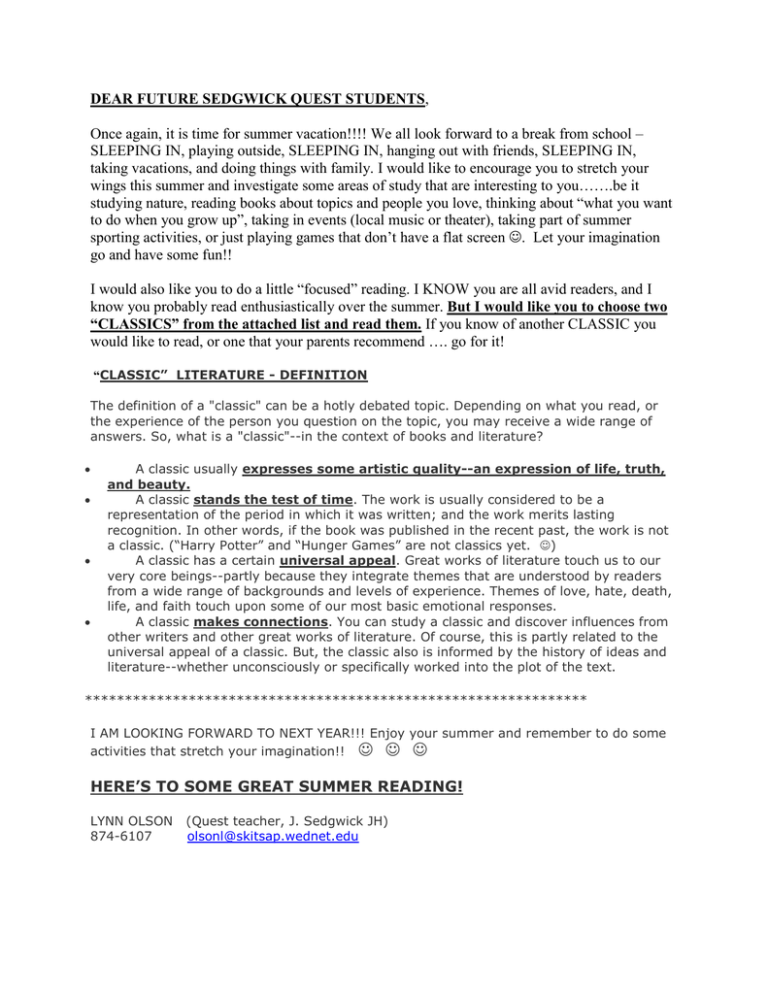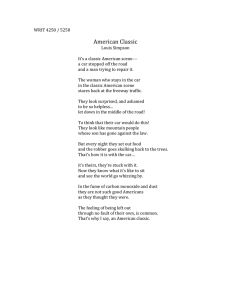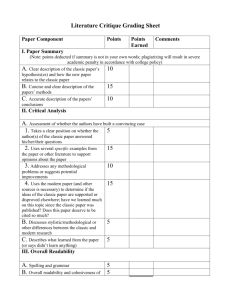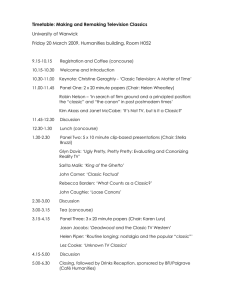DEAR FUTURE SEDGWICK QUEST STUDENTS
advertisement

DEAR FUTURE SEDGWICK QUEST STUDENTS, Once again, it is time for summer vacation!!!! We all look forward to a break from school – SLEEPING IN, playing outside, SLEEPING IN, hanging out with friends, SLEEPING IN, taking vacations, and doing things with family. I would like to encourage you to stretch your wings this summer and investigate some areas of study that are interesting to you…….be it studying nature, reading books about topics and people you love, thinking about “what you want to do when you grow up”, taking in events (local music or theater), taking part of summer sporting activities, or just playing games that don’t have a flat screen . Let your imagination go and have some fun!! I would also like you to do a little “focused” reading. I KNOW you are all avid readers, and I know you probably read enthusiastically over the summer. But I would like you to choose two “CLASSICS” from the attached list and read them. If you know of another CLASSIC you would like to read, or one that your parents recommend …. go for it! “CLASSIC” LITERATURE - DEFINITION The definition of a "classic" can be a hotly debated topic. Depending on what you read, or the experience of the person you question on the topic, you may receive a wide range of answers. So, what is a "classic"--in the context of books and literature? A classic usually expresses some artistic quality--an expression of life, truth, and beauty. A classic stands the test of time. The work is usually considered to be a representation of the period in which it was written; and the work merits lasting recognition. In other words, if the book was published in the recent past, the work is not a classic. (“Harry Potter” and “Hunger Games” are not classics yet. ) A classic has a certain universal appeal. Great works of literature touch us to our very core beings--partly because they integrate themes that are understood by readers from a wide range of backgrounds and levels of experience. Themes of love, hate, death, life, and faith touch upon some of our most basic emotional responses. A classic makes connections. You can study a classic and discover influences from other writers and other great works of literature. Of course, this is partly related to the universal appeal of a classic. But, the classic also is informed by the history of ideas and literature--whether unconsciously or specifically worked into the plot of the text. *************************************************************** I AM LOOKING FORWARD TO NEXT YEAR!!! Enjoy your summer and remember to do some activities that stretch your imagination!! HERE’S TO SOME GREAT SUMMER READING! LYNN OLSON 874-6107 (Quest teacher, J. Sedgwick JH) olsonl@skitsap.wednet.edu


